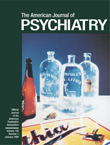Letters to the Editor
Mr. A was a 56-year-old man, otherwise healthy, with a 10-year history of dysthymia who was taking sertraline, 50 mg/day. He had a pre-SSRI history of erectile dysfunction. Since beginning sertraline, he experienced severe orgasm delay and impotence. Sildenafil before masturbation was first prescribed to titrate the dose and foster confidence. One hour after taking sildenafil, 50 mg, Mr. A regained full erections during self-stimulation. Subsequently, following sildenafil administration, he was able to reach orgasm during vaginal intercourse for the first time in a decade. He continued to experience mild orgasm delay despite higher doses.
Mr. B was a 23-year-old man, otherwise healthy, with a 6-year history of bipolar II disorder; he required daily, continual treatment with fluoxetine hydrochloride, 20 mg; gabapentin, 100 mg; diazepam, 5 mg; and dextroamphetamine sulfate, 5 mg. He had a pretreatment history of mild erectile dysfunction. During treatment, he experienced severe impotence and orgasm delay. Sildenafil, 100 mg, provided satisfactory erections about half of the time and enabled penetration during intercourse with unprecedented success, despite continued mild orgasm delay.
Ms. C was a 54-year-old postmenopausal woman in otherwise good health who had been taking fluoxetine first for dysthymia and then for depression for 4 years as well as standard postmenopausal estrogen replacement therapy (medroxyprogesterone acetate 10 mg/day) for 6 years. Fluoxetine doses above 40 mg/day obliterated her ability to reach orgasm, and she required up to 80 mg/day. She reported her first orgasm in more than 18 months during clitoral stimulation after taking sildenafil, 50 mg. She continued to experience impaired orgasm satisfaction and delay, however, even with doses of 50–100 mg. Ms. C complained of flushing, lethargy, and headache for 24 hours after sildenafil administration.
References
Information & Authors
Information
Published In
History
Authors
Metrics & Citations
Metrics
Citations
Export Citations
If you have the appropriate software installed, you can download article citation data to the citation manager of your choice. Simply select your manager software from the list below and click Download.
For more information or tips please see 'Downloading to a citation manager' in the Help menu.
View Options
View options
PDF/EPUB
View PDF/EPUBLogin options
Already a subscriber? Access your subscription through your login credentials or your institution for full access to this article.
Personal login Institutional Login Open Athens loginNot a subscriber?
PsychiatryOnline subscription options offer access to the DSM-5-TR® library, books, journals, CME, and patient resources. This all-in-one virtual library provides psychiatrists and mental health professionals with key resources for diagnosis, treatment, research, and professional development.
Need more help? PsychiatryOnline Customer Service may be reached by emailing [email protected] or by calling 800-368-5777 (in the U.S.) or 703-907-7322 (outside the U.S.).

